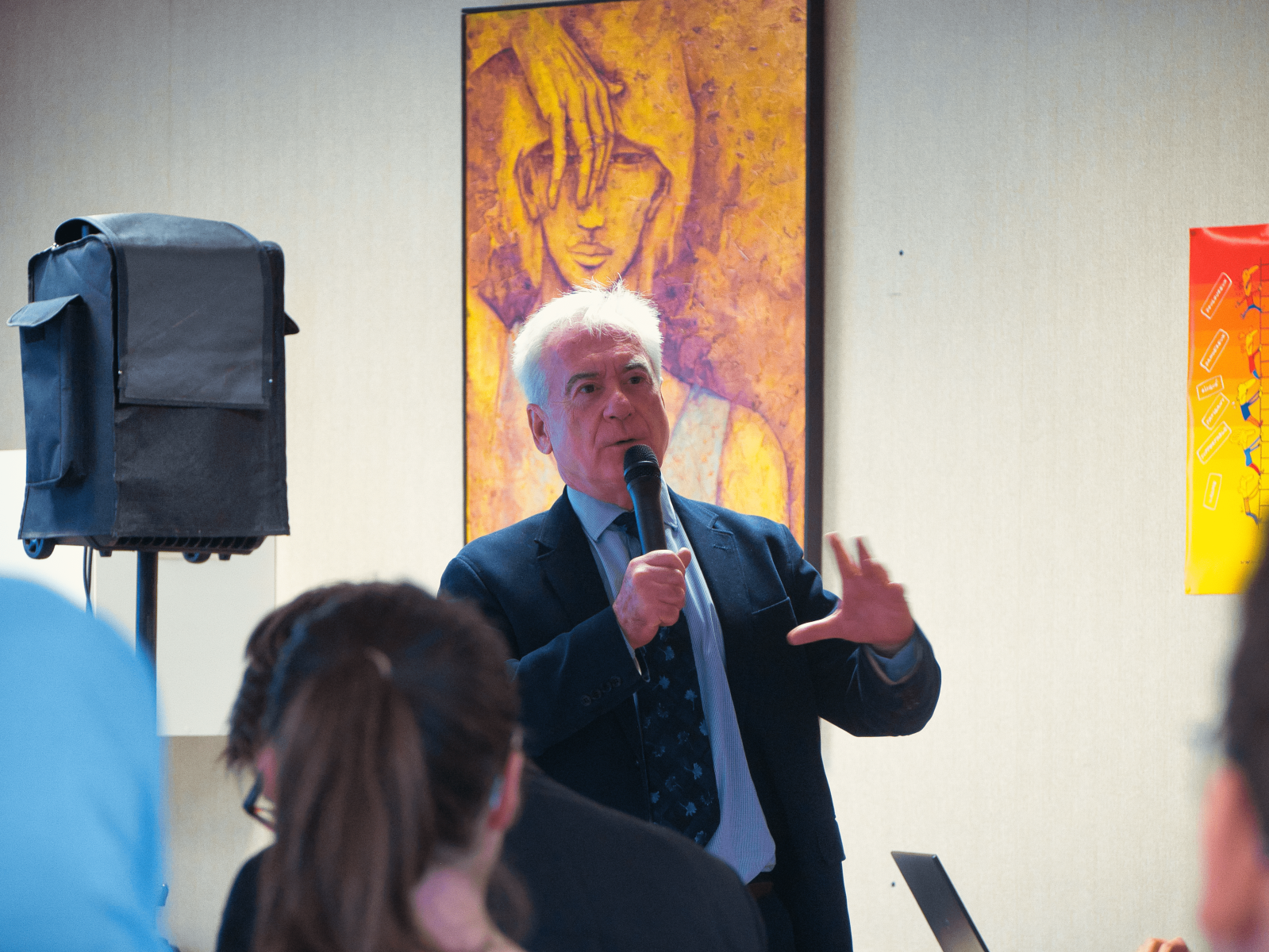- EUR-LIVE
- eur-live@u-pec.fr
Published on 18 déc. 2023
In 2016, over 1.9 billion adults, representing more than a quarter of the world's population, were overweight, with over 650 million of them struggling with obesity (WHO). These alarming statistics not only represent a public health crisis, but also prompt profound reflection on the critical importance of nutrition in our contemporary society, including among students. It is in this context that our reflection took place during the recent seminar on food security and sustainability organized by EUR LIVE and IEP Fontainebleau.
On 11 December, EUR LIVE and the IEP Fontainebleau (Institute of Political Studies) jointly organized a seminar at the Fontainebleau Conservatory of Music. This event was part of the closing activities of the first edition of the UPEC Student Citizens' Convention, which focused on the challenges related to food in its various environmental, health and social aspects.
Co-organised by these two institutions with the support of the FHU SENEC and the Seine-et-Marne département, the event was a true knowledge convergence. Focusing on food security and sustainability in France, the seminar brought together experts, researchers, food industry professionals and passionate students. At the heart of the discussions, speakers shared their knowledge, experience and vision to address the complex challenges related to food, with a particular focus on the vulnerability of students' health and lives.
Event Highlights:
9:30 a.m.: Opening: Mr. Jean-Luc Dubois-Randé, President of UPEC

10:00 a.m.: Human nutrition: a transversal approach to needs assessment: Pr. Irène Margaritis, Deputy director of risk assessment at the National Health Security Agency (ANSES)

10:30 a.m.: Obesity and vulnerability in health trajectories: Pr. Geneviève Derumeaux (UPEC)
.png)
11:00 a.m.: Nutrition and health: the vulnerabilities of the student population: Dr. Alice Bellicha (Université Sorbonne Paris Nord)

11:45 a.m.: Round table: Discussions with students

10:00 AM:
Professor Irène Margaritis, Deputy Director of Risk Assessment at the National Agency for Food, Environmental and Occupational Safety (ANSES), spoke about human nutrition with a focus on a multisectoral approach to needs assessment. During her presentation, she explained that the cross-cutting approach to health dates back to ancient Greece and emphasised the need to assess and prevent risks. It is important to discuss the need for a holistic assessment of nutritional needs, taking into account different factors such as health, food safety and associated risks. This cross-cutting approach underscores the importance of considering nutrition in a global context to ensure a comprehensive understanding of dietary needs and potential health risks.
10:30 AM:
Professor Geneviève Derumeaux addressed the topic of obesity, highlighting its relationship with vulnerability in health trajectories. During her presentation, she deepened the discussion by addressing the impact of adipose tissue and emphasising how the accumulation of this tissue is intrinsically linked to the vulnerability of obese individuals. This perspective enriches our understanding of obesity as a complex risk factor associated with many pathologies. It highlights the urgent need for a thorough understanding of the links between obesity and vulnerability in order to effectively direct health interventions and policies towards more targeted and tailored nutritional solutions.
11:00 AM:
Dr Alice Bellicha from Sorbonne Paris Nord University addressed the topic of nutrition and health, focusing on the specific vulnerabilities of the student population. She highlighted the challenges related to precariousness and food insecurity, highlighting the vulnerability of students facing time and financial constraints. The emphasis on these specific barriers provides an important perspective for understanding the nutritional problems faced by students.
Update 31 oct. 2023